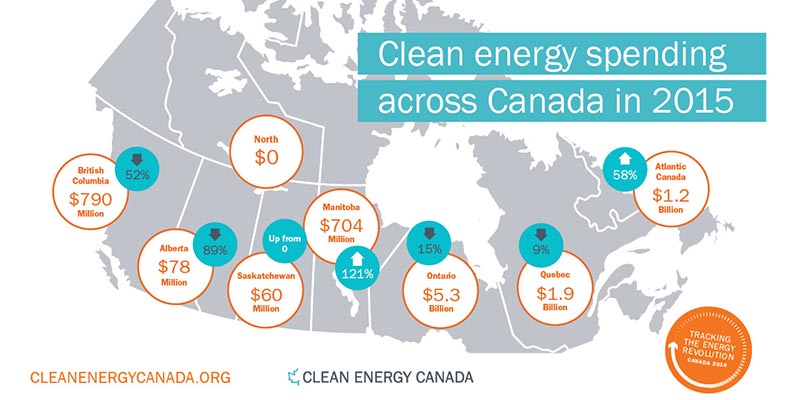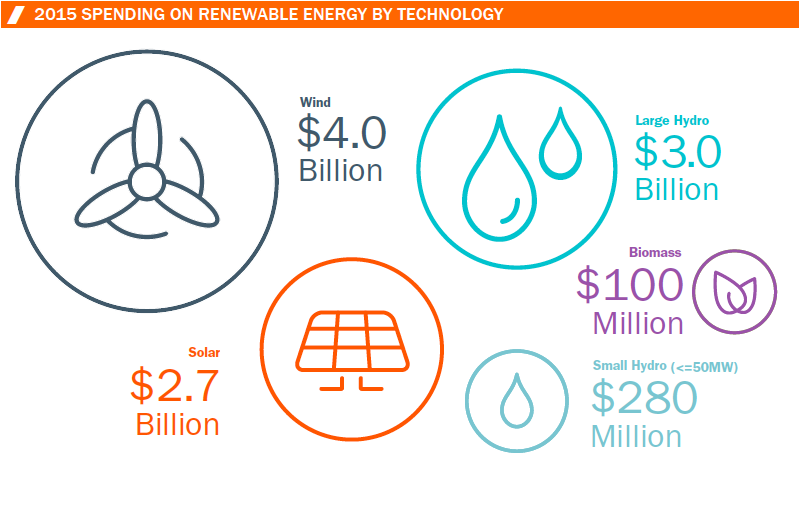A ‘pivotal time’ in green energy transition
Canadian spending on new clean energy development dropped in 2015, says renewables advocate
Renewables are expected to be the world’s fastest-growing energy source between now and 2040.
A recent report suggests that Canada has temporarily slipped off the pace.
Clean Energy Canada, which focuses on the shift to clean and low-carbon energy sources, says that 15 percent less was spent on new clean energy development in 2015 in Canada—a slow-down that is “out of step” with investment trends in other leading countries.
Clean Energy Canada’s findings are contained in its report, A Pivotal Time for Clean Energy, that was released on June 16 and is available online.
“Canada’s clean energy spending dropped last year, while it went up in countries that are our markets and competitors,” says Merran Smith, executive director of Clean Energy Canada. “This is a pivotal time in Canada’s clean energy transition, and the steps we take now will have a huge bearing on how quickly we make that transition—and how much we’ll benefit from it.”
Corporate and public spending on clean energy development in Canada fell to $10 billion in 2015, following an unprecedented expenditure of $12 billion in 2014.
According to Clean Energy Canada:
- Wind power was the leading element of that 2015 total, at $4.0 billion, followed by large hydro ($3.0B), solar ($2.7B), small hydro ($280 million) and biomass ($100M);
- Spending on new renewables generation in Canada in 2015 was equivalent to all new capital investment in mining and quarrying ($9.6B), and about half the amount invested in manufacturing ($19.1B).
While Canada’s clean energy spending total dipped in 2015, that $10B figure still represents the second-highest one-year total in Canadian history. Clean Energy Canada also notes that Alberta and Saskatchewan have announced plans to triple and double their respective renewable energy capacity, respectively, by 2030.
“We’re living in a new era of political resolve to tackle climate change,” says Smith. “As Alberta and Saskatchewan add more clean power to their grids, and as Ottawa announces new measures that support electrification, spending on clean energy will likely grow again in the years ahead.”
![]()
In the world's conversation about energy, one point is beyond debate: Energy makes a vital contribution to people's quality of life, to society and to human progress. This is true today, and it will remain true in the future. That's why Energy Matters was created. We believe it's important to equip people with unbiased information so they may form opinions, join the conversation and feel confidence in the work and accomplishments of the energy sector. Energy Matters is an initiative that provides transparent information and perspective on energy. Here, we'll cover a range of topics: the scale of global energy; the ways energy is sourced and produced; current energy technology; forthcoming innovations; the world's future energy needs; and the sustainable sources of energy that will fill them. Because energy matters to everyone, we hope you'll rely on Energy Matters as an ongoing source of balanced information.




